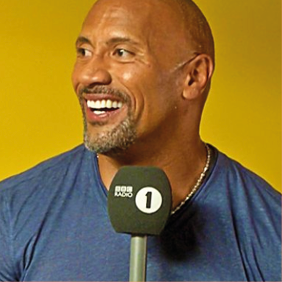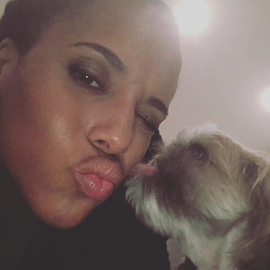
Secondary school activities
Self-care conversation
Suitable for all years
- Share the quote: “You can’t pour from an empty cup.”
- Ask the group what their initial thoughts or reactions are.
- Then ask if they think it is relevant to what we know about self-care.
- Acknowledge that at times it can be hard to prioritise looking after ourselves. This may be because we are very busy managing lots of pressures on our time. Or it may be because we find ourselves trying to help other people so it’s hard to find time to look after ourselves.
- Remind them that we all need to look after ourselves otherwise our batteries will run out. We all feel better when we are recharged.
- In pairs, ask them to think about one thing they do for self-care and one thing they’d like to try out.
- Ask the pairs to share back.

What is mental health?
Suitable for all years
- Ask everyone to complete the sentence ‘Mental health is…’ with an adjective of their choice.
- Go around the room and ask people to share the adjective that they would use.
- Share some key messages about mental health as follows:
-
- We all have mental health just as we all have physical health.
- Mental health is about the way we feel about ourselves and the world.
- Our feelings and thoughts are part of our mental health.
- We need to look after our mental health, just as we would look after our physical health.
- We can support our wellbeing by doing things we enjoy or help de-stress us.
- No one can see inside our head, so we need to tell people how we feel.

OR
- Ask everyone to complete the sentence ‘Mental health is…’ as concisely as possible.
- Ask them to consider what is the most important message about mental health.
- Encourage them to include hashtags.
- If you have whiteboards or pieces of paper/pens this is a fun way to do it. Or you can ask people for their thoughts or if you’re online to share them in the chat function.
- Share some key messages about mental health as above.
Mythbusting mental health quiz
Suitable for years 6-9
Part 1
Put your groups into teams. Depending on how many young people you have, there may need to be more than two teams.
Ask them to pick a team name.
Tell them that you will read a mental health quote to them and they will need to answer true or false.
Agree a way for the teams to answer. This could be hands up, a buzzer if you have one, a noise each team will make or someone from the team standing up.
If they get the answer right they are awarded a point.
If they can explain why or give more accurate information, they will get an extra point.
After each myth is ‘busted’, use some of the key messages in the resources to provide more information.
You may want to think of a fun way to keep score. This can be done by keeping a score board or by assigning sweets/beads/buttons to each team: one per point.

Mythbusting mental health quiz
(with key messages about each quote for you to share after each question)
Only some people have mental health – FALSE
We all have mental health in the same way that we all have physical health. They both need looking after as they can impact each other.
Our mental health changes over time – TRUE
Our mental health is always changing and will go up and down. Sometimes big life events or stresses may cause it to change. Other times it could be a build up of lots of little things in a short time period which impact our mental health.
I can look after my mental health – TRUE
This is the concept of self-care. There are things that we can do to help boost our mental health which can make us more productive and motivated and give us more energy. One of the most important forms of self-care is talking about our thoughts and feelings with a trusted adult. Part of looking after our mental health is also getting support from a medical professional if we are worried about our health.
We shouldn’t talk about mental health – FALSE
It’s really important that we talk about mental health. By speaking about it, we teach others to do the same thing too.
When we talk about mental health we help combat stigma because people may not fully understand mental health and therefore treat people differently. It also helps to highlight how important it is that we look after our mental health and get support if we need it.
Mental health is as important as physical health – TRUE
Our mental health and physical health are equally important and make up our overall wellbeing. When our mental health isn’t as good as it could be, it might start to affect our immune system so we’re more likely to pick up a stomach bug or a cold. If our physical health needs a boost, it may start to impact our mental health and we may find our mood becomes lower or we become more stressed.
Mental health isn’t the same as mental illness – TRUE
We all have mental health but we don’t all have a mental illness diagnosis. It is thought that in this country one in four British adults experience at least one diagnosable mental health problem in any one year and one in eight 5-19-year-olds had at least one mental disorder when assessed in 2017.
Stress won’t impact my mental health – FALSE
Stress is one of the areas of our lives which is most likely to impact our mental health. If we think about the times when our mental health might have needed a boost, it’s likely to be during times when we were stressed – possibly during exam season or when we had a deadline. If our stress levels are increasing and we’re finding it difficult to manage, it’s important that we talk to a trusted adult about it. They can help us think about ways to manage our stress. Having someone to talk to can also be good stress relief.
I shouldn’t go to my GP about my mental health – FALSE
Our doctor is the right person to go to if we have concerns about our mental health. They are there for both our physical and mental health because, as we’ve seen, they are connected. A GP can help us think about who we can talk to or some self-care options and, if needed, refer us to other professionals for further support.
Mental health can affect how I feel – TRUE
Mental health is all about how we think, feel and behave in the world so it is linked to how we feel. Our thoughts and emotions can be an indication of our mood and the state of our mental health.
My mental health can affect my physical health – TRUE
When our mental health needs a boost or our stress levels are high, we may experience changes to our physical health. These are most likely to include headaches, aches and pains from being tense and stressed, or being more likely to pick up a cold or stomach bug.
Part 2
After the quiz, ask the group why it is important to mythbust around mental health.
If needed, you can prompt them by thinking about where we get our mental health information and if it is always accurate.
If needed, suggest the group discusses the answers in pairs or smaller groups before sharing their thoughts.
As a whole group, think about what might happen if information is inaccurate. For example, people may not know where to get help, people might not look after themselves, stigma may increase, etc.
Mental health influencers
Suitable for Year 9+
- Divide the students into small groups.
- Assign each group one of the mental health influencers, which can be found in the resources below.
- Tell them they will be taking part in a debate to find the most influential mental health influencer.
- They will have 10 minutes to discuss in their teams why their influencer has contributed the most to mental health and raising awareness.
- One by one, each team will have three minutes to pitch their argument to the other groups.
- Let them know that when they have 30 seconds left of their pitch, you will raise your hand to warn them.
- At the end, everyone has one vote but they can’t vote for the person they pitched for. You can do this by raising hands, writing the name on a piece of paper or ticking a name off on a piece of paper, ballot style.
- Count the votes and announce who was voted the most influential mental health influencer.
- Open up the discussion about why it is important that we still educate and raise awareness about mental health.
10. Ask the group if they think this has improved in recent years and if they think we still need influencers for mental health and why.
11. Finish off the discussion by asking if influencers need to be high profile like the people we discussed. Help them think about what we could do to raise awareness about mental health.

 Roman Kemp
Roman Kemp
In a powerful open letter addressed to the Government calling for more mental health support teams in schools, Roman Kemp shared: “At the age of 15, I was diagnosed with depression and experienced suicidal thoughts for the first time. I would regularly find myself struggling to get through each day. I know first-hand that, even if people like myself are lucky enough to have a loving, privileged and tight-knit family, that isn’t always enough,” he wrote. “Proper support needs to be in place for those who need it, and the sad reality is that in 2023, it’s often individuals and charities who are trying to cover the gaps in a system that is becoming increasingly overwhelmed.”
 Kristen Bell
Kristen Bell
In an interview with The Off Camera Show, Veronica Mars star Kristen spoke out about her anxiety and depression, and how nobody should feel shame over taking medication to control their mental health.
“I got a prescription when I was really young and I still take it today and I have no shame in that because my Mom had said to me: ‘If you start to feel this way, talk to your doctor, talk to a psychologist, see how you want to help yourself.’
“If you do decide to go on a prescription to help yourself, understand that the world wants to shame you for that. But in the medical community, you would never deny a diabetic his insulin.”
 Dwayne ‘The Rock’ Johnson
Dwayne ‘The Rock’ Johnson
Appearing on an episode of Oprah’s Master Class, Dwayne – who suffered from depression in his early 20s – emphasised the importance of not hiding or being ashamed of mental health issues.
“I found that with depression, one of the most important things you could realise is that you’re not alone,” he said. “You’re not the first to go through it; you’re not going to be the last to go through it… I wish I had someone at that time who could just pull me aside and [say], ‘Hey, it’s gonna be okay. It’ll be okay.’ So I wish I knew that.”
 Kerry Washington
Kerry Washington
Speaking to Essence magazine, the Scandal star talked about her unhealthy relationship with food and compulsive exercising.
“I used food as a way to cope – it was my best friend,” she said. “I’d eat anything and everything, sometimes until I passed out.
“But then, because I had this personality that was driven toward perfectionism, I would tell people I was at the library, but instead go to the gym and exercise for hours and hours and hours. Keeping my behaviour a secret was painful and isolating. There was a lot of guilt and a lot of shame.”
Kerry went to therapy after being approached by her dance teacher about her eating disorder. She continues to see a therapist – as well as a nutritionist – to help her communicate her feelings instead of using food as a crutch.
Mental health in the news
Suitable for Year 9+
Part 1
- Show the group the different newspaper headlines which are reporting about mental health, in the resources below.
- Ask them to suggest what the story behind the headline might be. They can work in teams to do this or as one big group.
- You can prompt the discussion by asking:
• What do we think the story is?
• What does it tell us about mental health?
• Do we think it is a positive/negative headline? - Once the headlines have been discussed, share with the group what the story actually is. It might not be what we thought.
- Acknowledge that headlines can be misleading, especially if we only see headlines and don’t read the full articles.
- Ask the group what might be the impact on people reading these headlines? Do they get the full story? Is it easy to misinterpret or misunderstand what’s being said?
- Ask the group to consider if the articles were stigmatising in any way e.g. Do they encourage a negative perception about mental health or those with a mental illness? What might be the impact if the media is promoting or sharing inaccurate or harmful information?
Part 2
- Ask each person to create their own media headline.
- The headline could reflect something about young people’s mental health which they think the general public should know.
- If needed, start a discussion on what they, as young people, think adults should know about young people’s mental health or the pressures or experiences of young people in the 21st century. They can use these ideas to create their headlines.

Kylie Minogue opens up on keeping away from limelight after mental health struggles – read here
Billie Eilish, Selena Gomez and what we can learn from celebrities stepping back from social media – read here
‘Self doubt is always lurking’: Prince William talks mental health with Harry Kane – read here
It’s time to divorce your children from their phones – read here
Celebrities getting candid about their health challenges can help reduce stigma, experts say – read here